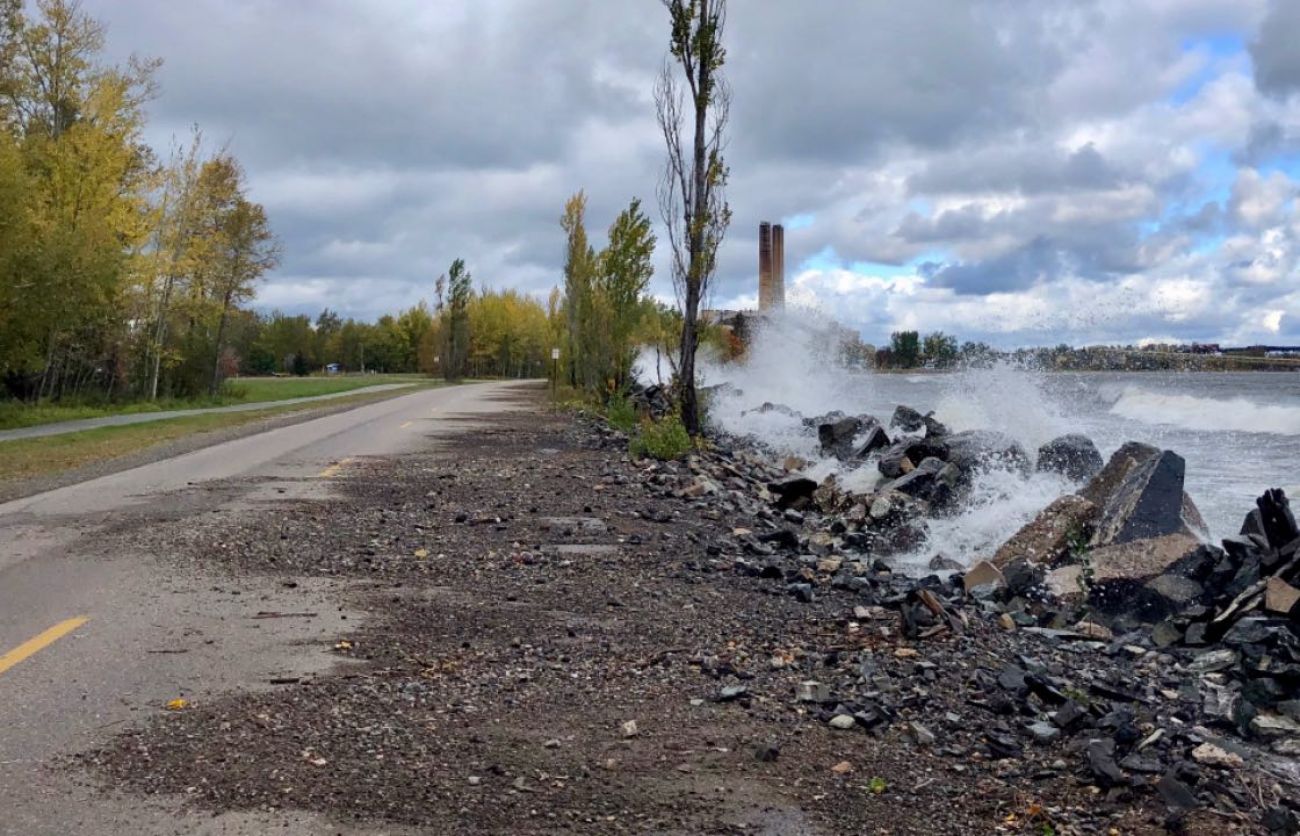Michiganders accept climate change but say others more likely to suffer



Most Michigan residents say climate change is happening and it will harm people in the United States — just not them personally, according to new polling data.
It’s a “stunning” gap, said Jennifer Marlon, a lead researcher on the project, by the Yale Program on Climate Change Communication.
The Yale research group annually estimates public opinions about climate science for every county in the United States using a decade of data and statistical modeling.
- Loving this mild Michigan winter? Outdoor enthusiasts sure aren’t.
- Gretchen Whitmer vows action on climate. Here’s how warming hurts Michigan.
- Marquette girds for climate change in Michigan’s Upper Peninsula
The group’s 2019 findings on public sentiment show broad concern among Michigan adults about climate change, if slightly less than the level of concern expressed by people nationally.
The majority of residents surveyed in every Michigan county (rural, urban, Democrat, and Republican alike) say they believe in and are worried about climate change.
Climate change is becoming “much more real to people on all sides of the political spectrum,” Marlon told Bridge Magazine.
The report estimated 65 percent of Michigan adults surveyed said they believe global warming is happening (compared to 67 percent nationally), while 17 percent said they do not believe it is happening. A slight majority, 53 percent, of Michiganders said they believe human activity is mostly responsible for global warming (32 percent said it is not mostly responsible). The report’s 2019 state-level data had a margin of error of +/- 7 percent.
Asked whether global warming “will harm them personally,” just 39 percent of Michiganders polled said they would be harmed a great or moderate amount; 51 percent said they would be harmed little or not at all by global warming.
The last decade saw six of the 10 hottest years on record globally, with intense weather events like forest fires and hurricanes becoming more common.
So far this year, Michigan is 7 degrees warmer than average. As Bridge reported in July, research predicts a number of other environmental challenges for Michigan, from rising waters to algae blooms, pests that threaten farm crops and soil erosion.
Where the Yale team still sees “a lot of division” is “what people understand as the causes of climate change and the science behind it,” Marlon said.
The optimism obstacle
Even though most residents are worried about climate change and believe it is going to harm people in the United States, majorities in every Michigan county ventured that it’s unlikely to harm them personally. They were much more likely to conclude that a changing climate will harm others in the United States, however.
Bridge’s analysis of the Yale data shows, on average, a 16 percent gap in each county between the number of people who say climate change will harm them personally and who say it will harm people living elsewhere in the United States. Washtenaw County showed the largest belief gap in the state at 20 percent.
This sense of comfort is not unique to residents in Michigan, a place that is repeatedly pointed to as a future refuge from the worst consequences of climate change.
The Yale estimates show people across much of the United States believe they are far less likely to be impacted by a changing climate than fellow Americans.
People surveyed by researchers tend to consistently believe they are less likely than other people to experience negative life events. Known as the optimism bias, it is part of why people rate themselves less likely than others to experience a heart attack, get in a car accident or get divorced. On the flip side, people overestimate how likely good things are to happen in their life, like winning the lottery or living longer than average.
When it comes to predicting how likely they are to be impacted by negative environmental events, like a hurricane or pollution, people are known to rate other places as more susceptible to environmental calamity than their home — no matter where in the world they live.
This sunny default stance can dissuade some people from acting in response to climate science studies. However, local governments are taking an increasingly large role in Michigan in enacting climate plans.
“The policy implications of [this gap] are challenging because people feel like they are immune” to the negative consequences, said Marlon, of Yale.
In her view, though, “you really only need a small segment of the population to get involved...It's not like we need everybody to be on the same page here. We just need a concerted small group, working towards these things.”
Note: Want to know what your neighbors or fellow voters think about climate change? Head to the Yale Climate Change Communication Opinion Factsheets generator to see the results on a variety of climate change questions for your county or congressional district.
Michigan Environment Watch
Michigan Environment Watch examines how public policy, industry, and other factors interact with the state’s trove of natural resources.
- See full coverage
- Subscribe
- Share tips and questions with Bridge environment reporter Kelly House
Michigan Environment Watch is made possible by generous financial support from:
Our generous Environment Watch underwriters encourage Bridge Michigan readers to also support civic journalism by becoming Bridge members. Please consider joining today.
See what new members are saying about why they donated to Bridge Michigan:
- “In order for this information to be accurate and unbiased it must be underwritten by its readers, not by special interests.” - Larry S.
- “Not many other media sources report on the topics Bridge does.” - Susan B.
- “Your journalism is outstanding and rare these days.” - Mark S.
If you want to ensure the future of nonpartisan, nonprofit Michigan journalism, please become a member today. You, too, will be asked why you donated and maybe we'll feature your quote next time!




